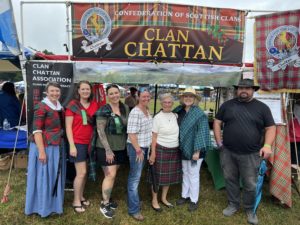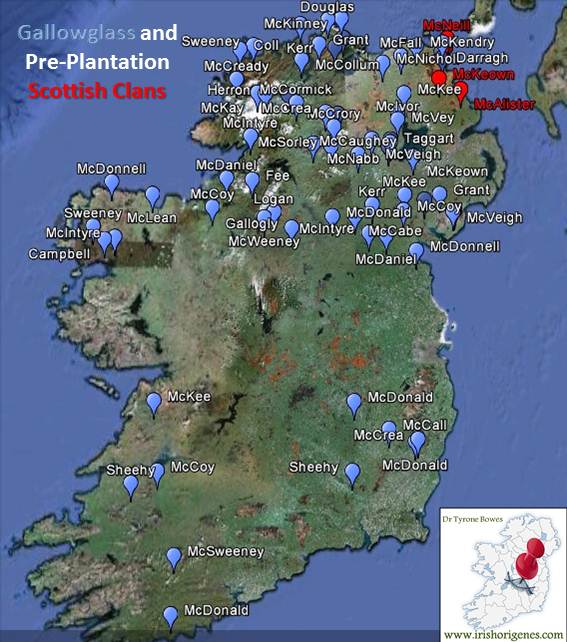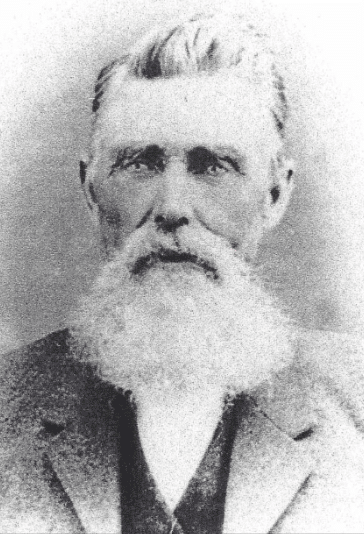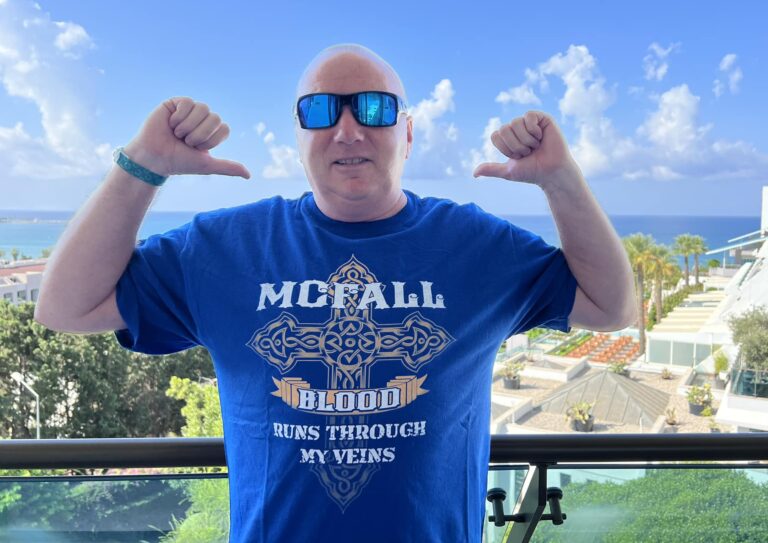Some of the story of the McFalls/MacPhails who immigrated to the colonies and those who stayed.

I just returned home from the Grandfather Mountain Highland Games where I met more of my extended McFall/MacPhail family. It used to be a surprise to find out that I was related to someone at an event with nearly 50,000 attendees from all over the United States. Now I’ve come to expect it! Especially since learning that some of my ancestors were in western North Carolina, near where the games are located, before moving across the Appalachian Mountains into east Tennessee. If I don’t depart from the games with at least a few new cousins, it’s a disappointment.
Keeping up with my ever-growing Scots-Irish family, which has expanded to Canada, Northern Ireland and Scotland, is complicated, and so in this post, I am going to attempt to sum up some things we have learned.
Arthur, the hound dog
As I previously wrote, the ancestry bug bit me with the discovery of my fifth great-grandfather, Cornelius Alfred Arthur McFalls. He was born in 1751 in Bedford, VA, (or near there) and moved to western North Carolina as a young man. He had children with four, perhaps five, different women (some wives, some not!) and has lots and lots of descendants. Arthur inspired us to start a McFalls Ancestry Group on Facebook in early 2020 where we began collecting all his kinfolk.
The group currently has 372 members; many, though not all, are descendants of Arthur. Some are descendants of Arthur’s family. Much of the discovery has been aided by DNA tests. First through Ancestry.com and then through Y-DNA testing at FamilyTreeDNA. My mother, Linda McFalls Kilby, has spearheaded this research and discovery since the very beginning; fortunately, she has two brothers who contributed their DNA to the project!
The proof is in the DNA
One of our biggest breakthroughs came with the Big Y-700 test on FamilyTreeDNA last year. This test explores two types of genetic markers, one for recent DNA connections and another for distant ones. When the results came back from the brothers, we learned that genetically we were Mcleans. Initially it was a surprise, but if you spend any time doing ancestry research you learn not to get stuck on surnames. We also have learned that non-paternal events happen/ed all the time and make ancestry research even more difficult!
This information was the beginning of our unique Mclean/MacPhail line, which, based on the Big Y test, probably occurred around 1100 CE. A union between a male Mclean and a female MacPhail resulted in a baby boy retaining the MacPhail surname. While we still don’t know very much about the history of our line from 1100 to 1600 CE, we have a few theories, some of which are supported by our DNA.
The Gallowglass theory

One theory is that our Mclean/MacPhail ancestor was a part of the Mclean clan and supported them when they became mercenary soldiers (Gallowglass) in Ireland between the 13th and 17th centuries. This theory is based on DNA participation in the Gallowglass Project on FamilyTreeDNA where our line’s DNA is grouped with MacDonnell’s “Redshanks” (Glynnes of Antrim).
We know that the Gallowglass began disbanding in Ireland in the 1600s and that our ancestor immigrated from Northern Ireland to the American colonies beginning in the early 1700s. All of this is a very BIG leap and needs much more research and documentation. For example, we think it’s likely that our Mclean/MacPhail ancestors started using the surname McFall/McFaul prior to immigrating to the American colonies. We also think it’s likely they were Protestants not Catholics. But these are just theories. Discovering your ancestry takes more than DNA. It also requires you to become an amateur historian!
Who were the immigrants from County Antrim?
Another theory we are exploring is that seven McFall/s brothers immigrated from the County Antrim area in Northern Ireland beginning in the 1730s and continuing to the late 1770s. While they came at separate times, they all settled in Virginia. Why do we think there are seven? Primarily through family history. In a letter from a John McFall written to a niece sometime between 1906 and 1910, he explains that she likely has some Scots-Irish ancestry.
“Grandfather’s father came to America previous to the Rev. War and was one of seven brothers who fought in that war. So you are eligible to be a D.A.R. that is, a daughter of the American Revolution. In other words a blue-blooded American. These early McFall’s came from the North Ireland and were Orange men or Protestants.”
We also have a descendant in our group who has a family saying about “any six McFalls.”
These are just tidbits, but my mother’s approach to exploring our ancestry is to go with a theory until it’s confirmed or disproved, and then move on to a new one.
We have identified three of seven possible brothers through descendants in our Facebook group who share the same Y chromosome.
Brother #1: John (Alexander) McFaul/McFalls. John Sr. was most likely born around 1721 in County Antrim and was in Augusta County, colonial Virginia by the early 1740s. He had three sons: John McFall Jr., born approximately 1745 in Bedford, VA; George McFalls, birth date unknown; and Cornelius Alfred Arthur McFalls (my ancestor), born 1751 in Bedford. We have found at least three documents that confirm this though we still have no documentation for John Sr.’s wife. There is both a mountain peak and creek in Bedford County that bear the McFalls name. His sons moved south to North Carolina, and all three fought in the Battle of King’s Mountain with the Tories. John Jr. was hanged, and George was killed in the battle. Arthur was injured but survived and was spared from hanging after committing to serve with the Patriots. It is unknown, but unlikely that John Sr. fought in the American Revolution as we think he died about 1751.
Brother #2: Cornelius McFall. Cornelius was born in County Antrim approximately 1734 and came to the Virginia Colony before the start of Revolutionary War. He settled in Bedford County and remained in Virginia. He possibly had three sons who moved west to the colonial frontier. One of his descendants in our ancestry group is a fifth cousin to my mother’s brothers.
Brother #3: Francis McFall. Francis was born 1730-40ish in County Antrim and was identified in the Virginia Colony before the start of the Revolutionary War serving on the estate of an Englishman. He fought in the Revolutionary War and moved to Washington County, TN, as part of the Watauga Settlement. We have many DNA matches to his descendants but none are currently in our group.
We have identified four other McFalls from Virginia who fought in either the Revolutionary War or the War of 1812: David McFall, Niel McFall, James McFall (War of 1812), and Daniel McFall (also War of 1812).
More ancestors in the Mclean/MacPhail line
Beyond these brothers, we have identified possible ancestors in Arthur’s extended family through DNA testing from descendants in our group, but we need additional DNA testers as well as more research to figure out the specific family connections. We have a newly active McFall Group Project on FamilyTree DNA with administrators that are helping us to organize and track all the family lines. The details below begin to get in the weeds a bit, but it helps us communicate what we know right now with other descendants who may our kin.
Multiple lines with descendants in Scotland
John McFall was born in Ahoghill, County Antrim in 1792 and is the ancestor of a member of our group who lives in Edinburgh, Scotland. Rather than immigrating to the American colonies, his ancestor left Northern Ireland and went back to Scotland. We connect through Y-DNA testing.

Charles McFall, born 1812 in County Antrim, is the earliest known ancestor of a Scottish member of our group who lives near Glasgow. This is another instance of an ancestor returning to Scotland after some period of time in Northern Ireland.
John McPhail, who was born 1845 in Argyllshire, is the ancestor of a new member of our group who was seeking to find his biological family. After DNA testing, he has joined the Mclean/MacPhail line. We are eagerly awaiting his Big Y test results as we hope they will help us make more 18th century connections.
And more in North America
Yet another John McFall line! John was born in Craigs, County Antrim in 1767 and came to Charleston, South Carolina, when he was 17. He eventually purchased a plantation in Anderson, South Carolina. Another male descendant from John’s line is needed to test. We connect but genetically further away.
Malcolm McFall line. Malcolm was born around 1750 in what was the Pennsylvania Colony and does not match either the Charles or John McFall lines above. There are four descendants from the Malcolm line who have tested through FamilyTreeDNA Y testing, but they do not have any McFall matches past Malcolm, which leads us to suspect that Malcolm’s mother may have been the McFall. Autosomal testing through Ancestry.com shows that Malcolm descendants do match with our Mclean/MacPhail line.The Malcolm descendants have started a subgroup to continue their research.
Charles McFall line. Charles was born in 1812 most likely in County Antrim but was not one of the brothers who immigrated. Could this be the same Charles McFall who is identified as an ancestor to our group member living in Glasgow? Possibly. While his wife and children show up back in Scotland, he does not. Maybe he immigrated without his family? Our Y chromosome testing shows a line from County Antrim to Rockbridge, VA. We have two Y matches to this line but additional DNA testing and research is needed.
Whew! This is a lot. But it’s only a tiny bit of a huge family tree. If you are a part of the McFalls Ancestry Group, and I have not addressed your specific line in this article, please be patient. We have learned so much over the last year that it is indeed a bit like drinking from a fire hose. My mother typically posts new discoveries in the Facebook group. There are also DNA updates and information in the FamilyTreeDNA McFall project group. If you are a Mclean/MacPhail cousin or think you might be, please come and join us!


